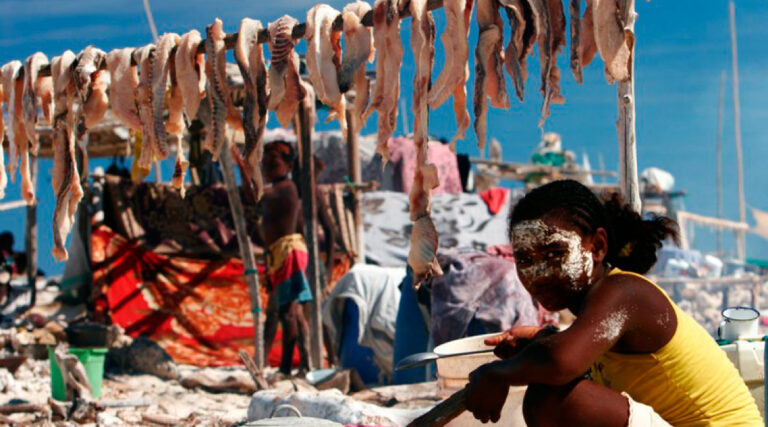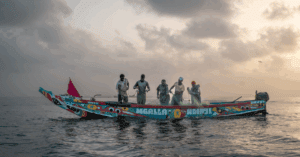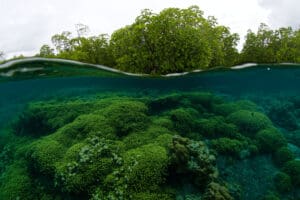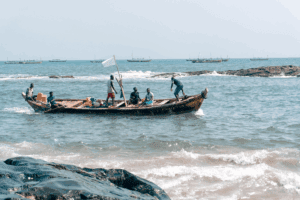The remote Barren islands of western Madagascar harbour some of the healthiest coral reef habitats in the western Indian Ocean, comprising a network of coral reefs and cays situated in the Mozambique Channel, between 15 and 65 kilometres from the west coast of Madagascar.
In large part due to their remoteness, the islands’ extensive reefs and lagoons have not suffered the levels of exploitation that have degraded coral reefs elsewhere in Madagascar and the Indian Ocean. Sea birds, marine turtles, dolphins and sharks are abundant in the islands, and the biomass of coral reef fish is higher than anywhere else recorded in Madagascar.
“The Barren Isles ecosystem gives us a window into Madagascar’s past, when marine resources were plentiful and human pressure on these ecosystems was just beginning to outstrip their natural capacity to recover,” said the study’s author, Dr. Garth Cripps. “In addition to harbouring an exceptional biodiversity, the Barren Isles are an economic and cultural lifeline to traditional Sara and Vezo fishers.”
The rich and diverse habitats within the isles’ coastal and marine ecosystems support a productive artisanal pelagic fishery. Many of the nomadic fishers visiting the region migrate over 1000km to the islands each year from their resident villages on Madagascar’s mainland.
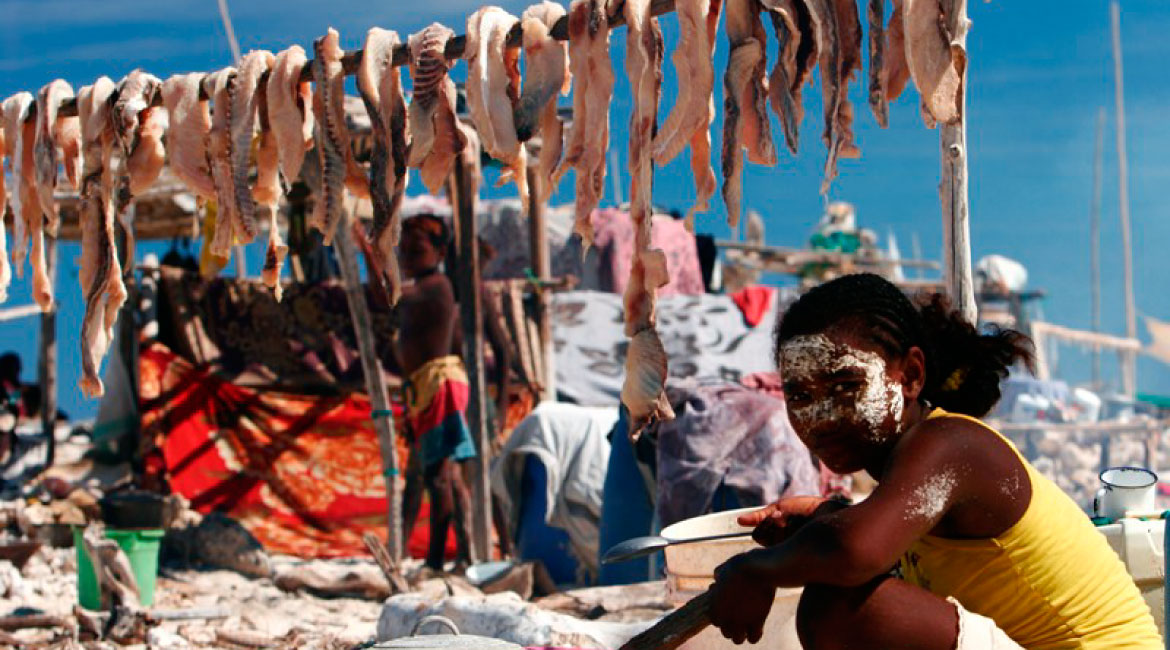
Yet despite the islands’ great conservation importance, the study cautions that the archipelago’s exceptional biodiversity is now facing immediate threats from uncontrolled overexploitation. Ever increasing numbers of fishers visiting the region, many of whom are using increasingly destructive fishing techniques, are now driving unprecedented fishing pressure on the fragile marine habitats.
Teams of SCUBA divers working from trawlers are illegally collecting vast numbers of sea cucumbers for export. Others use motorised boats and bottom-set “barrage” nets, which may be up to 5 kilometres in length, to target rare guitarfish and sharks. These nets lead to large amounts of unwanted and discarded by-catch, including endangered sea turtles and rays.
A rapid decline in sea cucumber and shark numbers has been reported by local fisherman. Marine turtles, although protected by international and Malagasy law, are also being heavily exploited by fishers.
“Already this year we’ve seen a dramatic collapse in shark catches. This time last year, there was shark meat hanging in all the stalls in the market, this year we rarely see it and when we do it’s usually just little juveniles.” said Estelle Felicité Tetany, a resident of Maintirano, the mainland town closest to the islands. “Some people stubbornly stick to the idea that the sharks have been scared away, but most people know that there are too many fishermen out in the islands these days.”
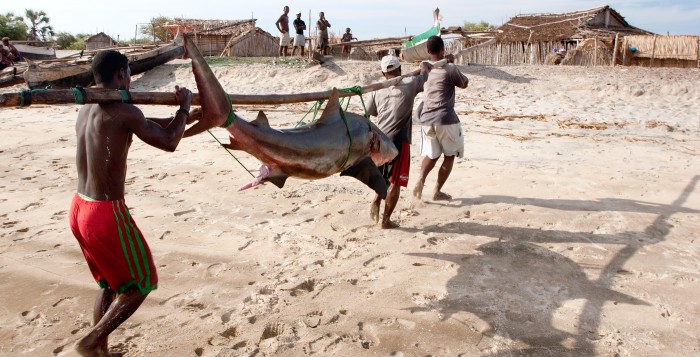
The study’s findings were recently presented to government representatives, fishing groups and community leaders in Maintirano, marking the launch of an ambitious 3-year marine conservation programme being developed in the region. Communities recognise there is now an urgent need to develop conservation plans to protect the Barren Isles through sustainable community-based marine resource management.
“The islands are a tremendously important resource for the Melaky region. They have cultural, subsistence, and economic values and need to be managed sustainably.” said Simon Ralava, head of the regional administration of western Madagascar’s Melaky region.
It is hoped that a future network of marine protected areas in western Madagascar, incorporating the Barren Isles, will make a crucial contribution to the long-term economic viability of traditional Vezo and Sara communities through protecting the ecosystems that their livelihoods depend on.
Financial support for this study was provided by WWF and the Natural Museum of Geneva through the: “Réseau interdisciplinaire pour une gestion durable de la biodiversité marine: diagnostic environnemental et social autour des tortues marines dans le sud-ouest de l’Océan Indien.”
The full report, “Feasibility study of the protection and management of the Barren Isles ecosystem, Madagascar” published by Blue Ventures in partnership with the Worldwide Fund for Nature (WWF), can be downloaded here.
About Blue Ventures
Blue Ventures is an award-winning marine conservation organisation, dedicated to working with local communities to conserve threatened marine environments. Our highly acclaimed conservation programmes work with some of the world’s poorest coastal communities to develop conservation and alternative income initiatives to protect biodiversity and coastal livelihoods. The results of our work help us to propose new ideas to benefit coastal communities everywhere.
For more information about Blue Ventures’ conservation work, please visit: http://blueventures.org/research.html
For more information about Blue Ventures’ expeditions, please visit: http://blueventures.org/expeditions.html

